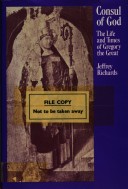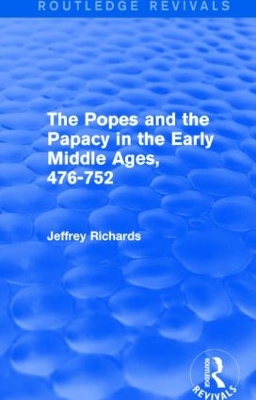Routledge Revivals
2 total works
Gregory the Great, whose reign spanned the years between 590 and 604 A.D., was one of the most remarkable figures of the early medieval Papacy. Aristocrat, administrator, teacher and scholar, he ascended the throne of St Peter at a time of acute crisis for the Roman Church.
Consul of God, first published in 1980, revises the traditional picture of Pope Gregory. It examines how he organised the central administration of the Papacy and his unremitting war on heresy and schism. Gregory also pioneered a new pastoral tradition in learning, promoted monasticism, and trained the episcopate.
Jeffrey Richards demonstrates that Gregory was both a conservative and a pioneer, and just as his reign looked forward to the medieval world it also looked back to a vanishing world of imperial unity. He was thus the last representative of those Roman senators whose fortitude and energy he emulated, earning the epitaph 'Consul of God'.
The Popes and the Papacy in the Early Middle Ages (Routledge Revivals)
by Jeffrey Richards
There has been a tendency to the view the history of the early medieval papacy predominantly in ideological terms, which has resulted in the over-exaggeration of the idea of the papal monarchy. In this study, first published in 1979, Jeffrey Richards questions this view, arguing that whilst the papacy's power and responsibility grew during the period under discussion, it did so by a series of historical accidents rather than a coherent radical design.
The title redresses the imbalance implicit in the monarchical interpretation, and emphasizes other important political, administrative and social aspects of papal history. As such it will be of particular value to students interested in the history of the Church; in particular, the development of the early medieval papacy, and the shifting policies and characteristics of the popes themselves.

